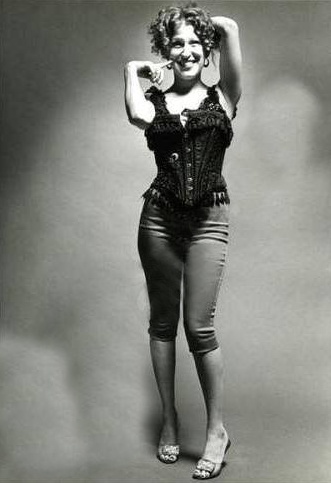BBC America’s ‘The Office’ is bleak fun for the times
 Back in the 1970s, during our last big economic slump, Bette Midler came out with a timely album titled “Songs for the New Depression.”
Back in the 1970s, during our last big economic slump, Bette Midler came out with a timely album titled “Songs for the New Depression.”
Now, cable channel BBC America brings us a half-hour sitcom called “The Office” — a show for the newest depression.
Debuting at 7:20 tonight (and repeating at 10:20), “The Office” puts to shame all those glossy American workplace comedies where issues of money and job cuts never intrude.
It’s bleak, baby. And that’s the wincing perfection of this award-winning hit series from Great Britain.
“The Office” is an exercise in confrontation therapy for viewers who know just how awful the average work environment really is: a domain of incompetent sycophants, meaningless jargon, misapplied energy, petty grabs for power and, at the head of the parade, a boss with the world’s worst people skills.
The boss is David Brent (Ricky Gervais, also the show’s co-writer and director).
He presides over a paper supply company in a middling industrial town near London — a faded locale rife in all the dead-end associations with the term “regional office.”
Most of us have worked in a place like this at some point in our lives. “The Office,” shot documentary-style under harsh office lighting, punctuates its action scenes with occasional face-to-face interviews that reveal the intimate David in all his clueless glory.
“What upsets me about the job?” he says. “Wasted talent, yeah?”
“People could come to me and go, ‘Scuse me, David, but you’ve known this business 12 years, could you spare a moment to tell us how to run a team, how to keep them task-orientated as well as happy?’ But they don’t. That’s the tragedy.”
Brilliantly imagined by Gervais, David is that horrendous compound of the boss who tries to be your best friend, the hipster, the team player — and then suddenly turns on you in a moment of paranoid savagery. His lack of self-comprehension is breathtaking.
The other characters aren’t much more sympathetic, albeit they are more aware. David’s right-hand helper is Gareth (Mackenzie Crook), a creepy striver doomed not to be taken seriously by virtue of the meaningless designation Team Leader.
Uptight Gareth is perpetually at war with Tim (Martin Freeman), a compulsively irritating joker who’s learned that the surest way to get under Gareth’s skin is to abuse anything with his name labeled on it.
Other characters include Dawn (Lucy Davis) as the long-suffering, blasé receptionist, and Finchy (Ralph Ineson), David’s close friend and highly incompetent warehouse worker.
Together, the cast has mastered the British-born style of comedy that specializes in deliberately awkward delivery, furtively muttered asides and long, empty pauses. It’s as different from frantic, laugh-track-riddled U.S. sitcoms as one can imagine.
Over several episodes in which the recurrent theme is cutbacks, additional characters are introduced and the series begins to delve deeper into the lives of its main players.
But the real star is “The Office” itself, that peculiar, modern-day invention where the incompatible are assigned adjoining desks, rules designed to encourage energy achieve just the opposite, and Bartleby the Scrivener’s sublime indifference becomes the only logical response.






